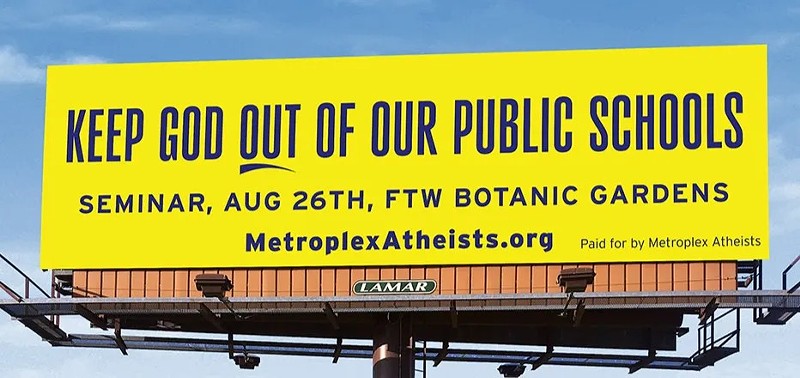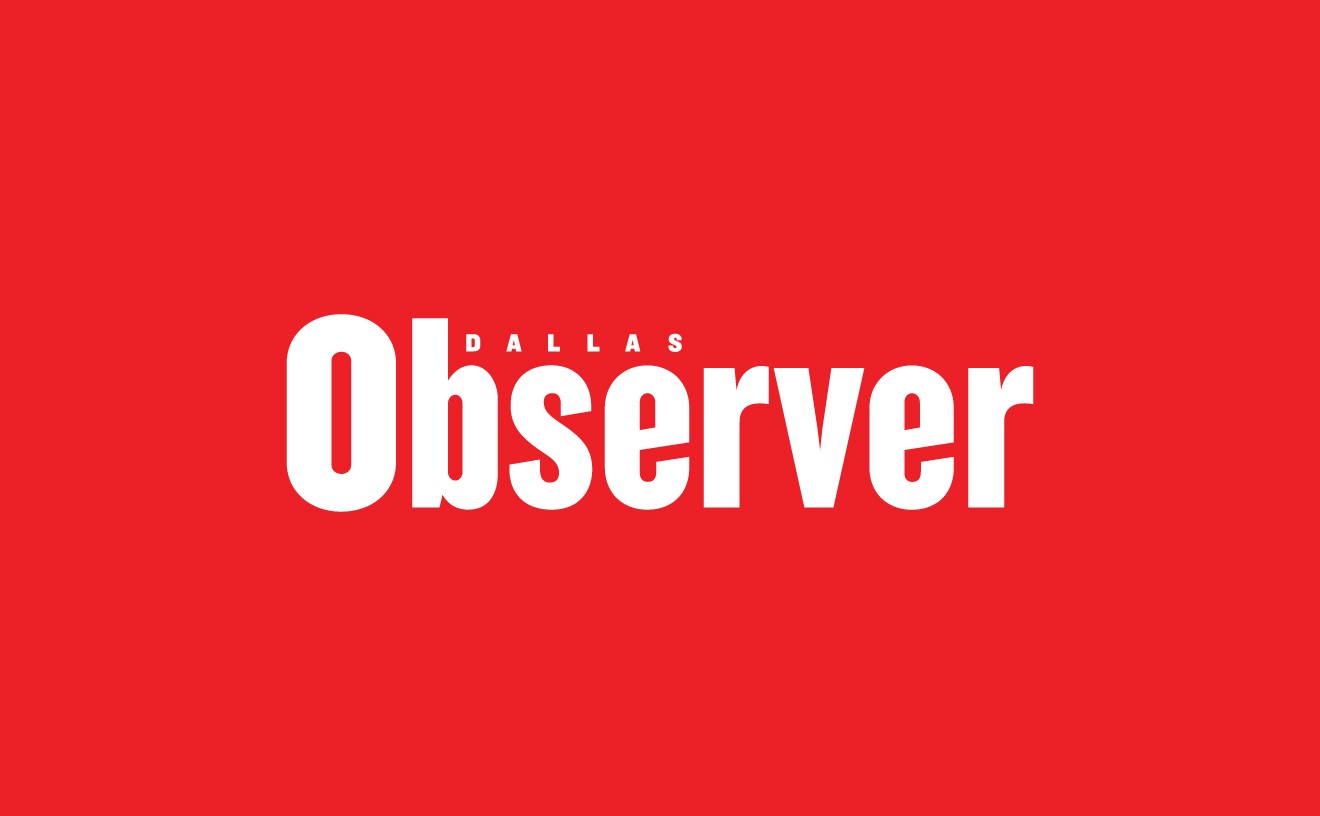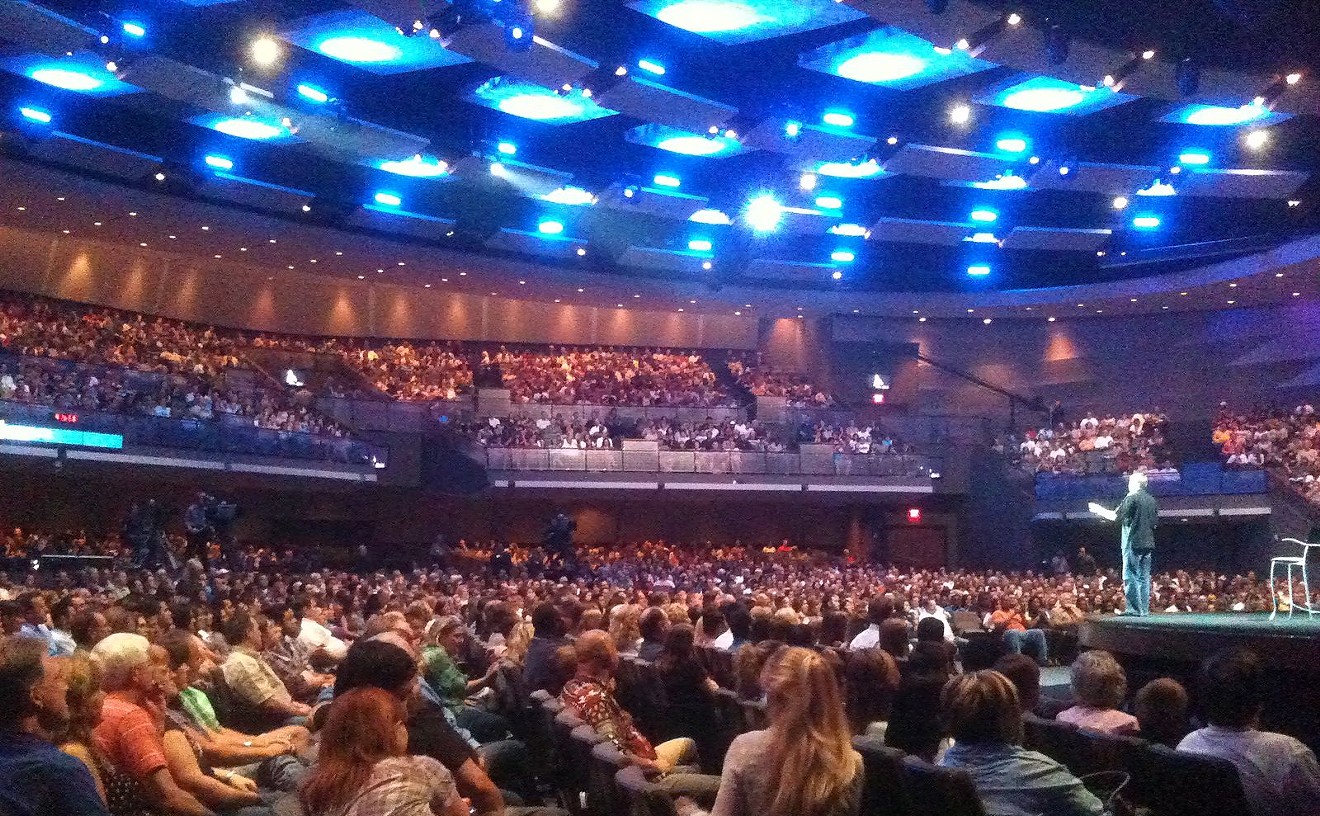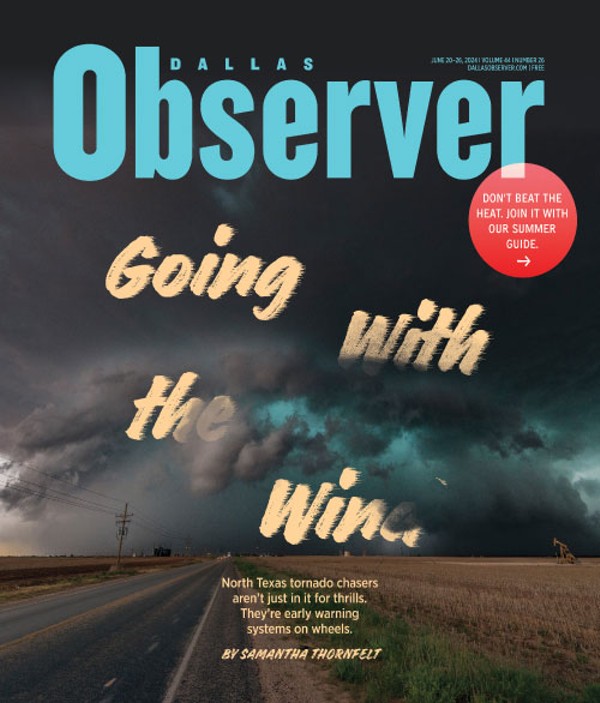The group sued the city of Fort Worth in federal court last month because it was told it wouldn’t be allowed to use city lampposts to promote the event, as it did in 2019.
The city’s policy on lamppost banners stipulates that an event being promoted must take place in Fort Worth and be open to the general public, be of common interest to the general community and recognize and/or contribute to the cultural fabric of the city. The Fort Worth group thought its event checked all of those boxes, but it was still denied access to use the lampposts for its banners because the event was deemed to lack sufficient magnitude to qualify.
Metroplex Atheists’ lawsuit claims the city of Fort Worth discriminated against atheists and violated their freedom of speech by denying the group access to the lampposts. In an emailed statement last month, the city of Fort Worth told the Observer that it believed it had acted appropriately in denying the group access to the lampposts and that it would defend its position in court.
The atheist group was trying to get a preliminary injunction against the city so the banners could be posted on the downtown lampposts advertising the event while their lawsuit worked through the courts. But District Judge Reed O'Connor denied the preliminary injunction. Despite this, the group will continue pursuing the lawsuit.
In a last-minute effort to promote the event throughout the month, the group has bought space on a billboard at Anglin Drive and Interstate 20. Now, instead of banners scattered across the downtown area, drivers can see a bright yellow billboard that says “Keep God Out of Our Public Schools.” Terry McDonald, the group’s treasurer, said another member of the group paid for the billboard so he didn’t know exactly how much it cost, but it likely would have been cheaper to post the banners as originally planned. McDonald said the group is organizing a protest on Main Street in Fort Worth where participants will carry the banners that would have gone on the lampposts.
“I think the judge didn’t pay any attention to the law,” McDonald said of the decision.
In the decision, the judge wrote that a preliminary injunction is an “extraordinary remedy” that can only be granted if Metroplex Atheists met four requirements. They needed to establish a substantial likelihood that they’d win the case, that there is a substantial threat of irreparable harm, that the balance of hardships weighs in their favor and that the issuance of a preliminary injunction wouldn’t disservice the public interest.
“I think the judge didn’t pay any attention to the law.” – Terry McDonald, Metroplex Atheists
tweet this
The judge, however, said that Metroplex Atheists failed to show a substantial likelihood that it would succeed in its case based on its First Amendment claim because the city’s banner program represents government speech, not a limited public forum.
This comes down to the government speech doctrine, which recognizes that government entities are entitled to say what they wish and to select the views that they want to express.
Geoffrey Blackwell, litigation counsel with American Atheists, a national group helping with the lawsuit, said the government speech doctrine allows the city of Fort Worth to speak for itself and in some instances select people to speak for it. For example, at a presidential inauguration, the president-elect can pick people to speak at the podium. “That does not create a public forum for anyone to use that podium,” Blackwell explained. “The government is speaking there as part of this ceremony. The government is closely curating the message that it wants to send on its behalf.”
The city is claiming that it is similarly exercising government speech in curating who and what organizations can use the downtown lampposts. But Blackwell said the city usually doesn’t really curate who can use the banners. Instead, if a nonprofit meets all the criteria for the banner program, which Metroplex Atheists did, it is usually approved, he said.
Blackwell said that the lawsuit likely won’t be resolved by the time the event rolls around but that the group regularly hosts events and would like to be able to use the downtown lampposts to promote them in the future.
Umair Khan, president of Metroplex Atheists, said he was disappointed by the judge’s decision but not surprised. He said he looks at the decision as just a temporary setback. “We will continue our lawsuit on behalf of all the atheists who have suffered discrimination – in Fort Worth, in Texas, and all throughout our country,” Khan said in a press release. “We deserve the same rights and respect as all other groups, and that’s what this lawsuit has always been about."
Despite the judge's ruling, Khan still thinks the event will have a good turnout.
The event will offer several speakers on August 26 at the Fort Worth Botanic Garden. They include Dr. Bradley Onishi, a University of San Francisco faculty member and co-host of the religion and politics podcast Straight White American Jesus; Dr. Wil Jeudy, the Texas state director of American Atheists; the Rev. Dr. Katie Hays, founder-pastor of Galileo Church; and Randall Theo, president of the DFW chapter of the Freedom From Religion Foundation.












